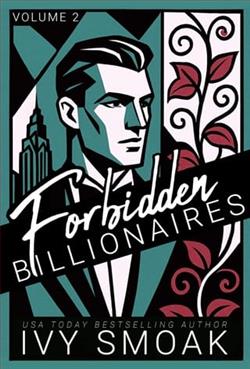Page 30 of So Far Gone
They drove for almost two hours through forested foothills and river valleys, up the Idaho panhandle to a town nearly on the Canadian border, where a retired Tustin, California, police officer stood up from behind a bare oak desk and introduced himself as “Sheriff Glen Campbell.” Kinnick glanced over at Chuck Littlefield, but he had no reaction to the name.
Glen Campbell wore a cowboy hat and an epauletted uniform shirt that strained to contain his broad chest and broader belly. Badge overheart, hand-mic clipped to shoulder, he spoke out of the left side of his mouth, like he had a chaw on the other side. And even though he’d apparently lived in Anaheim for forty years before moving up to the muzzle of Idaho, he had a north-country twang that Kinnick recognized as more cultural than regional. “So,” he said to Chuck, “I hear you played softball with that worthless ol’ fat-ass Dunham.”
“He said you might call him that,” said Chuck.
“Well, he is a worthless ol’ fat-ass. I can’t imagine that tub-a-lard gets down the line too fast.”
“No—”
“Don’t see him beating out a lot of infield hits.”
“He ain’t exactly what you’d call a base-stealing threat.”
They talked this way for a few minutes, about their mutual cop friend, another retiree from Southern California, who apparently was a “hilarious son of a bitch,” “a complete asshat,” and “a drunken shit-monkey most days,” leaving Kinnick to wonder how they’d talk about someone theydidn’tlike.
Finally, Chuck got down to telling Kinnick’s story.
“Sounds domestic,” Sheriff Glen said when Chuck was finished. “I’m sorry for your trouble,” he said to Rhys, “but that appears to be family court business, and not my concern.”
“Well, no,” Chuck said. “These guys forcibly abducted two kids and assaulted their poor grandfather.” Chuck turned to Kinnick. “Show him your face.”
Kinnick flinched atpoor grandfather, but he turned so the sheriff could see the full damage.
“Doesn’t look too bad to me. Black eye, swollen cheek. Have you iced it?”
“It’s a broken zygomatic arch,” Kinnick said.
“I don’t know what that is,” Sheriff Glen said.
“It’s the cheekbone,” Kinnick said. “I’ll have to have surgery to repair it.”
“Well, if you were assaulted in Spokane, you really have to take that up with the Spokane police. It’s got nothing to do with me. You can take your story and your broken zygowhatever and go havethemfile assault charges. As for this other thing, with your grandkids, the way I see it, it’s still just a custody issue. You can takethatup in family court. Nothing I can do about it, I’m afraid.” Then Sheriff Glen turned to Chuck, his splotchy neck reddening. “Look, I appreciate that you’re Dunham’s friend. But there’s no way he told you this was a good idea, bringing me this half-assed custody bullshit.”
Kinnick leaned forward. “With all due respect, Sheriff, this is about more than custody. My grandchildren were taken away from me and hauled off to a militia camp. They might be in danger up there.”
“What makes you think they’re in danger?”
“Well—” Kinnick pointed to his own black eye. “There’s this.”
“Yousay they’re in danger, andyousay the kids’ mother asked you to watch them, andyousay these guys hit you out of the blue. What do you think these fellas are gonna tell me when I go up there? They’re gonna say the kids’ father askedthemto watch the kids. Maybe they’ll even say you got hostile withthem.”
Kinnick reached into his pocket. “I have a note from their mother—”
The sheriff held up his hands. “Good. A note from Mommy. And tell me—what’s their father gonna say when I ask him, Mr. Kinnick? Is he going to tell me that you’re the dangerous one?”
He looked at Chuck. “What is this?”
Chuck’s entire body language had changed. He was leaning back in his chair, eyes narrowed, staring hard at the sheriff. “Youdoknow who we’re talking about,” Chuck said. “Those goose-stepping Army of the Lord nutjobs.”
The red went from the sheriff’s neck up over his face, even as he offered a wide, calming smile. “Sure, I know them. I know Pastor Gallen. He’s a good man. A veteran. I know Dean Burris, too. And yes, I know the Rampart. I know that every time I go upthere—because a neighbor complains about gunfire, or there’s a dispute over them training in the woods—what I find is a bunch of God-fearing, law-abiding members ofmycommunity, who, while they might question the federal government, happen to respect the hell out of the role a sheriff plays in a place like this, a sheriff, I might add, who won his Republican primary by a mere sixteen votes against a man with no law enforcement experience at all, a man who openly called for armed rebellion. So, if you want me to be even clearer about it, I will just say that these ‘nutjobs’ are a powerful constituency in this county. Which, if I may be blunt, you and Broken Cheekbone here are not.”
Chuck continued staring hard at Sheriff Glen Campbell.
“Now. If there’s nothing else.” The sheriff gestured at his empty desk. “I have a lot of work to do.”
As they left the sheriff’s office, a smiling receptionist said, “Y’all have a good day, now!”
They were quiet as they walked to the truck, Littlefield stewing. “What a fucking coward,” he finally said. “Indulging those paranoid dipshits marching around the woods with their semiautos. Guy thinks he can make pets out of rattlesnakes.”















